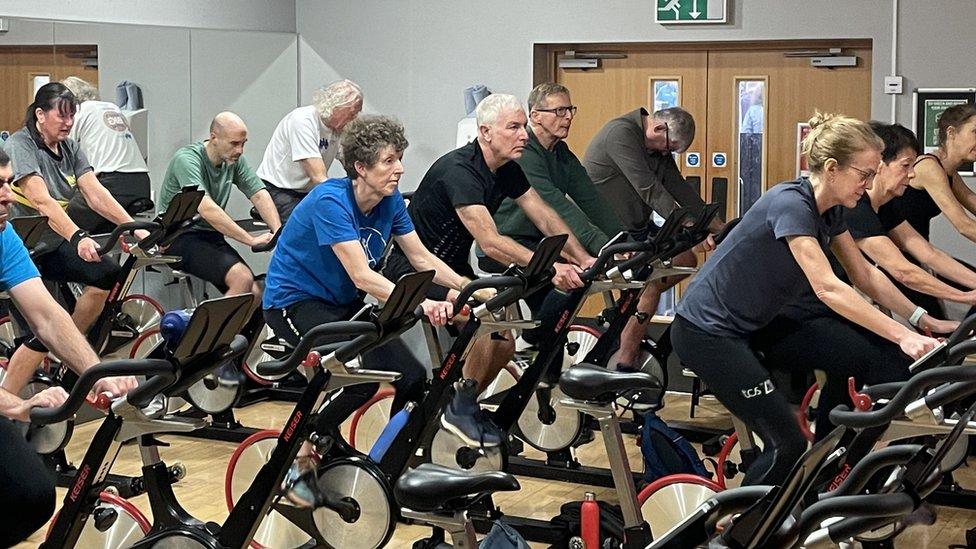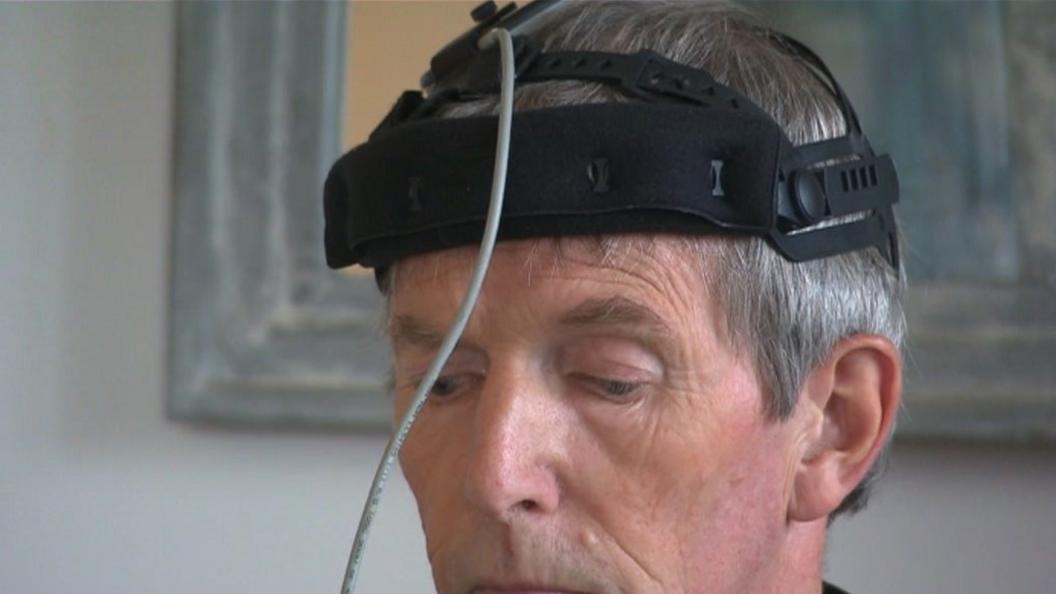Bristol Parkinson's spin class helping people's symptoms
- Published

People can now attend the specialist Parkinson's spin class in Horfield Leisure Centre
A new spin class for those with Parkinson's disease is helping to ease some of the symptoms of the degenerative disease.
The weekly sessions at Horfield Leisure Centre in Bristol are run by Everyone Active and Bristol City Council.
According to the Leisure centre, people with Parkinson's experience significant benefits from pushing pedals on a regular basis.
Steve Butt from Bristol said the class had already helped with his tremors.
"I was diagnosed with Parkinson's in 2021. It started with tremors in my hands and now my balance isn't too good.
Already showing benefits
"This is the first time I have had an opportunity to do spin. The tremors are now slightly less and I feel better for the exercise and generally my balance is better," he said.
"Parkinson's is a degenerative disease, external so if I can slow it down then I've got longer to live a normal life."
Class instructor Kevin said: "There's a lady who did her first course. She hadn't done much exercising before," he said.
"She was struggling to get into the garden. She told us that she recently went into the garden and the last time she could go into the garden was five years ago.
"It's absolutely insane that we've helped her get back into the garden, get confidence and go from there."

What is Parkinson's disease?
The three main symptoms are involuntary shaking, slow movement and stiff and inflexible muscles
A person with Parkinson's can also experience a wide range of other physical and psychological symptoms, including depression and anxiety, balance problems, loss of sense of smell, problems sleeping and memory problems
Parkinson's disease is caused by a loss of nerve cells in part of the brain called the substantia nigra
Exactly what causes it is unclear - most experts think a combination of genetic and environmental factors is responsible
About one in 500 people is affected by Parkinson's disease
Although there's currently no cure, treatments including medication and physiotherapy can help reduce the main symptoms
With advances in treatment, most people with Parkinson's now have a normal or near-normal life expectancy
Source: NHS

Follow BBC West on Facebook, external, Twitter, external and Instagram, external. Send your story ideas to: bristol@bbc.co.uk , external
Related topics
- Published26 April 2022
